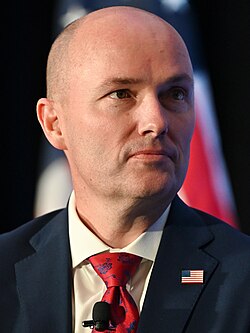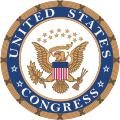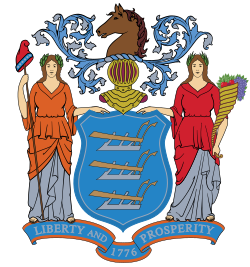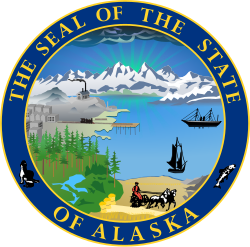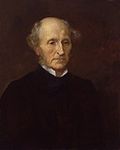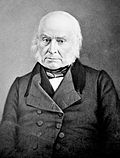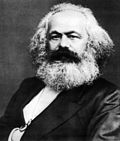Portal:Politics
| Main | Topics and categories | Tasks and projects |
The Politics portal

Politics (from Ancient Greek πολιτικά (politiká) 'affairs of the cities') is the set of activities that are associated with making decisions in groups, or other forms of power relations among individuals, such as the distribution of status or resources. The branch of social science that studies politics and government is referred to as political science.
Politics may be used positively in the context of a "political solution" which is compromising and non-violent, or descriptively as "the art or science of government", but the word often also carries a negative connotation. The concept has been defined in various ways, and different approaches have fundamentally differing views on whether it should be used extensively or in a limited way, empirically or normatively, and on whether conflict or co-operation is more essential to it.
A variety of methods are deployed in politics, which include promoting one's own political views among people, negotiation with other political subjects, making laws, and exercising internal and external force, including warfare against adversaries. Politics is exercised on a wide range of social levels, from clans and tribes of traditional societies, through modern local governments, companies and institutions up to sovereign states, to the international level.
In modern states, people often form political parties to represent their ideas. Members of a party often agree to take the same position on many issues and agree to support the same changes to law and the same leaders. An election is usually a competition between different parties.
A political system is a framework which defines acceptable political methods within a society. The history of political thought can be traced back to early antiquity, with seminal works such as Plato's Republic, Aristotle's Politics, Confucius's political manuscripts and Chanakya's Arthashastra. (Full article...)
Selected article
The Convention of 1832 was the first political gathering of colonists in Mexican Texas. Delegates sought reforms from the Mexican government and hoped to quell the widespread belief that settlers in Texas wished to secede from Mexico. The convention was the first of a series of unsuccessful attempts at political negotiation that eventually led to the Texas Revolution. On October 1, 1832, 55 political delegates met at San Felipe de Austin to petition for changes in the governance of Texas. Notably absent was any representation from San Antonio de Béxar, where many of the native Mexican settlers (Tejanos) lived. The delegates elected Stephen F. Austin (pictured), a highly respected immigrant, as president of the convention. Delegates passed a series of resolutions requesting, among other things, a repeal of the immigration restrictions, a three-year exclusion from custom duties enforcement, permission to form an armed militia and independent statehood. They also voted themselves the power to call future conventions. Before the petition could be delivered to Mexico City, the political chief of Texas, Ramón Músquiz, ruled that the convention was illegal and annulled the resolutions. In a compromise, the ayuntamiento (city council) of San Antonio de Béxar drafted a new petition with similar language to the convention resolutions and submitted it through proper legal channels. Músquiz forwarded the new document to the Mexican Congress. (more...)
Featured picture

A campaign poster from the National Union Party during the US election of 1864, showing presidential candidate Abraham Lincoln (left) and his running-mate Andrew Johnson. The Republican Party changed its name and selected Johnson, a former Democrat, to draw support from War Democrats during the Civil War.
Selected quote
Selected biography
Ramón Emeterio Betances was a Puerto Rican nationalist. He was the primary instigator of the Grito de Lares revolution and, as such, is considered to be the father of the Puerto Rican independence movement. Betances was also the most renowned medical doctor and surgeon of his time in Puerto Rico, and one of its first social hygienists. He had established a successful surgery and ophthalmology practice. Betances was also a diplomat, public health administrator, poet and novelist. He served as representative and contact for Cuba and the Dominican Republic in Paris. A firm believer in Freemasonry, his political and social activism was deeply influenced by the group's philosophical beliefs. His personal and professional relationships (as well as the organizational structure behind the Grito de Lares, an event that, in theory, clashes with traditional Freemason beliefs) were based upon his relationships with Freemasons, their hierarchical structure, rites and signs.
Did you know (auto-generated) -

- ... that the Grand Husseini Mosque has served as a gathering point for political demonstrations in Amman for nearly a century?
- ... that nearing the end of his tenure as mayor of Tegal, Indonesia, Adi Winarso took part in a talkshow with his former political competitors?
- ... that the party leader of the new Dutch youth political party LEF – For the New Generation tattooed his party's program points on his forearm?
- ... that the Chinese Red Army housed its political directorate in a Catholic church in 1935?
- ... that Patricia Grace did not intend for her novel Potiki, about the impact of land development on an indigenous community, to be seen as political?
- ... that Philipp Tanzer has been an army medic, artist, firefighter, hairdresser, massage therapist, festival organiser, political candidate and gay porn star?
More did you know...
- ...that the traditional form of government in Tibet from 1642 to 1951 was the Cho-sid-nyi?
- ...that the 1968 pamphlet Is the School House the Proper Place to Teach Raw Sex? claimed that sex education was a Communist conspiracy?
- ...that the American Society of Magazine Editors book The Best American Magazine Writing 2007 features investigative journalism about the Beslan school hostage crisis and survivors of Agent Orange?
- ...that the Libyan opposition has embraced "Zenga Zenga", an Israeli-created auto-tuned song and viral YouTube video that parodies Libyan ruler Muammar Gaddafi (pictured)?
- ...that Nunez Community College in Chalmette, Louisiana, is named for the late wife of former Louisiana State Senate President Samuel B. Nunez, Jr.?
- ...that tiao-kuai is the quasi-federal administration system in China?
In this month
- October 1, 1949 – The People's Republic of China is officially proclaimed.
- October 1, 1982 – Helmut Kohl, described as "the greatest European leader of the second half of the 20th century" by George H. W. Bush and Bill Clinton, is elected Chancellor of Germany.
- October 4, 1849 – Official founding of the Colombian Conservative Party.
- October 7, 1949 – The Democratic Republic of Germany DDR is established officially.
- October 7, 2003 – Voters recall Governor Gray Davis from office and elect actor Arnold Schwarzenegger to succeed him.
- October 10, 1911 – The Wuchang Uprising starts the Xinhai Revolution that leads to the founding of the Republic of China.
- October 10, 1919 – The Kuomintang of China was founded.
- October 27, 2005 – The political establishment in France is rocked by the spread of rioting among poor immigrant communities in suburbs of the major cities.
News and Current events
- August 11: 4 local government areas in New South Wales, Australia locked down after COVID-19 case
- August 11: Australia: AstraZeneca vaccine access expanded by Victorian government
- August 1: Australia: Victorian lockdown lifted
- July 29: Tunisia's president dismisses prime minister, suspends parliament
- July 25: Australia: Wikinews interviews Reg Kidd, mayor of the City of Orange, about COVID-19 lockdown and local government
- July 23: South Australia enters week-long lockdown to contain COVID-19 Delta variant spread
- July 21: Technological University Dublin senior lecturer Dr Lorcan Sirr speaks to Wikinews on housing market in Ireland
- July 21: Three rural councils in New South Wales, Australia enter 7-day lockdown
- July 21: Australia: Victoria lockdown extended by a week with 85 active cases recorded
- July 15: California governor signs new state budget, eligible Californians to get stimulus payments
Topics and categories
General images
Related portals
Associated Wikimedia
The following Wikimedia Foundation sister projects provide more on this subject:
-
Commons
Free media repository -
Wikibooks
Free textbooks and manuals -
Wikidata
Free knowledge base -
Wikinews
Free-content news -
Wikiquote
Collection of quotations -
Wikisource
Free-content library -
Wikiversity
Free learning tools -
Wiktionary
Dictionary and thesaurus


